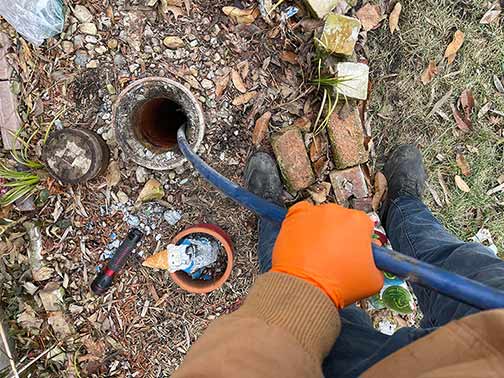
Why do the drain lines in your home become clogged? Is there something you can do to prevent clogging in the future? Many homeowners ask these questions. Today, we answer them.
Why do clogs happen in your drainage pipes?
There are two reasons why your drains clog, says Abrams Management. Firstly, drain clogs happen as a side-effect of how the drainage system is designed. Secondly, drain clogs are often the direct result of how the occupants of a home use the drainage system.
Why do your drains clog
Reason One
The drainage lines in your home collect used-up water from all the plumbing fixtures inside the house, as well as from the water-utilizing appliances in your home. This water is channeled to the municipal sewer line in the street. However, it is not just water that enters your drain lines.
The wastewater coming from the different sources in your home also contains quantities of solid and semi-solid materials. As this non-liquid content passes through your drain lines, because of gravity, some of it settles at the bottom of the pipes.
With time and as the process repeats, the amount of deposited materials – aka buildup – inside the pipes reaches a level where they start to interfere with the flow of water. When this happens, the drains in your home become slow, and we say the pipe is clogged.
But the process doesn’t end there. If you do not do anything to remove the debris inside your pipes, the rate of buildup will actually start to increase. This is because the wastewater passing through the line is forced to slow down, making it easier for debris to settle.
This accumulated buildup can eventually block the pipe channel, making it hard or impossible for wastewater to pass through. At this point, only a direct intervention can restore the water flow through the drainage system.
Reason Two
Drain lines also become clogged when you or someone in your home intentionally or accidentally puts the wrong items into the drains. Drainage systems are both sturdy and sensitive at the same time. They can handle certain types of materials but perform very poorly with others.
Your drain lines are not designed to handle fats, oils and grease, coffee grounds, eggshells, cat litter, starchy foods (such as pasta, mashed potatoes, and rice), fibrous vegetables, feminine hygiene products, paper wipes, or tissues, and many so-called flushable items.
Putting these items into your drains will result in clogs and blockages. Clogs, leaks, and blockages in your drain lines are also caused by the frequent use of chemical drain cleaners. Chemical drain cleaners solve your drainage problems temporarily, only to worsen them later.
Preventing drain clogs with professional drain cleaning
From the explanations above, buildup happens partly as an unintended consequence of how drains are designed to function. This means it is impossible to stop buildup inside your drain lines. However, it is possible to stop buildup from clogging your drains.
How do you do that?
You can stop buildup from clogging your drains when you clean the lines regularly to remove the debris inside them. This is the best way to terminate the processes that cause buildup in the first place. The two best methods for doing this are sewer rodding and hydro jetting.
- Sewer rodding: This method uses a flexible line with a grappling head at the end. This is inserted into the drain and used to dislodge the debris within the pipes. If you use power rodding, a rotating stainless steel cutting head is attached to the business end of the line to make it even more effective.
- Hydro-jetting: Uses jet streams of high-pressure water delivered directly into the clogged line via a cord and stainless steel nozzle. The water pressure used in the operation is high enough to blast away sludge, soap scum, and tree roots without harming the pipes.
What are the benefits of cleaning your drain lines regularly?
Why you should clean your drains every year
- Optimized performance
Annual drain cleaning keeps your drainage line flowing all the time. By having the drains cleaned professionally once a year, you can eliminate the risk of drain clogs and blockages and their impact on your home.
- Protect your home and family
Annual drain cleaning limits the risk of water damage to your building. You also protect your family’s health by reducing the risk of mold, mold sickness, low indoor air quality, and bacterial exposure due to sewage odors inside the home or sewer line backup.
- Save money
When done yearly, professional drain cleaning helps you save the money that would have gone into solving issues caused by clogged drains in your home. Cleaning your drains regularly also prolongs the life of your plumbing, helping you avoid premature replacement.
Finally, what do you need to know before hiring a plumber to clean your drains? Ensure the plumber you hire has the up-to-date drain cleaning equipment and enough experience to use it. You also want to check their reputation with other customers in your locality.

